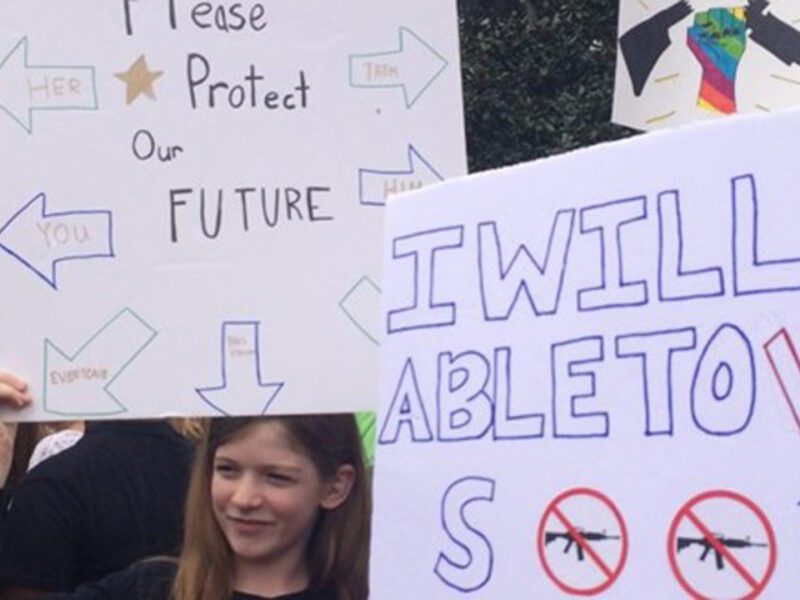Florida school officials won’t be shielded from testifying about book restrictions
Sun Sentinel | By Dara Kam | July 22, 2024
TALLAHASSEE — A federal judge denied an effort by Escambia County school officials to be shielded from testifying about removing and restricting school-library books but paved the way for them to file a revised request, pointing to a recent decision in a similar lawsuit.
Litigation in the Panhandle county has intensified amid a nationwide controversy over school districts’ moves to remove or limit access to school books and instructional materials.
U.S. Magistrate Judge Zachary Bolitho’s ruling, issued Friday, came in a case in which parents of schoolchildren, authors, the publishing company Penguin Random House and the free-speech group PEN America have challenged Escambia book removals and restrictions. The plaintiffs argue the decisions violated First Amendment rights.
Bolitho’s ruling on whether school officials would have to testify largely mirrored a decision this month by U.S. District Judge Allen Winsor in a separate lawsuit challenging Escambia school officials’ removal of the children’s book “And Tango Makes Three.” That book tells the story of two male penguins who raised a penguin chick at New York’s Central Park Zoo, and the lawsuit contends, at least in part, that the book was removed for depicting same-sex parents raising a child.
Lawyers for the school board and Superintendent Keith Leonard sought a protective order shielding the officials from being deposed in the “And Tango Makes Three” case. They raised a series of arguments that included whether the testimony would be relevant and whether school-board members are shielded by a concept known as “legislative privilege.”
Winsor’s July 10 ruling denied the request, saying in part that the board sought to assert the privilege as a legislative body.
“The board members could seek to quash the subpoenas (for depositions) based on legislative privilege,” Winsor wrote. “But it is not clear the board can assert the privilege itself as grounds for a protective order, especially without a direct indication that the members wish to invoke the privilege.”
Bolitho’s decision Friday in the broader book case relied heavily on Winsor’s four-page ruling.
“Here, defendant (the Escambia school board) argues in its motion that the board acts collectively, and not as individuals. Thus, defendant says ‘(e)rrant comments by individual board members do not equate to formal board action’ and are, therefore, irrelevant,” Bolitho wrote. “But as Judge Winsor determined, the motives of individual board (members) are relevant in this case and go to ‘the factual heart of’ plaintiffs’ First Amendment claims.”
Bolitho also pointed to a part of Winsor’s ruling that addressed what is known as the “apex doctrine,” which can shield high-level officials from having to testify in lawsuits.
“The ‘apex doctrine’ does not necessarily apply when the top-level official has first-hand knowledge and may possess information that is not reasonably available from others,” Bolitho wrote.
Winsor’s ruling said board members and superintendent had “personal knowledge of relevant facts’ that would likely be ‘unavailable from other witnesses,’ which weighed heavily in favor of permitting their depositions,” Bolitho wrote.
“Here, again, the undersigned (Bolitho) agrees with Judge Winsor,” he added.
Bolitho’s ruling also laid out a road map for school officials to revise their request to be shielded from depositions, again using Winsor as a guide.
Winsor rejected the school board’s request “without prejudice to their filing a new motion.” Such a motion would include “support for asserting legislative privilege on behalf of its members as grounds for a protective order” and “affidavits from each board member confirming their intent to assert legislative privilege” and to rely on the board’s lawyers for doing so.
“The undersigned believes the same path should be taken here,” Bolitho wrote. “If the individual board members wish to assert legislative privilege, then they must do so personally. Accordingly, defendant’s motion for a protective order will be denied without prejudice to their filing of a new motion that comports with the instructions Judge Winsor issued.”
Bolitho’s ruling also came amid legal wrangling over whether a 7-year-old who is part of the broader book lawsuit should be required to be deposed by lawyers for the school board.
Attorneys for the board urged U.S. District Judge T. Kent Wetherell, who is overseeing the case, to reject a request for a protective order that would shield the child, identified by the initials J.N., from having to testify in a deposition.
The board’s attorneys said J.N. is a plaintiff through her mother, Ann Novakowski, but that the mother cannot adequately testify about the child’s efforts to check out books that have been removed or restricted.
“The child has unique knowledge about her likes and desires and, more importantly, her efforts to obtain these books from her school library,” the board’s attorneys wrote. “The board should not be required to, and indeed this court should not, rely exclusively on J.N.’s mother’s alleged recitation of what J.N. communicated to her, particularly when there are no indications that J.N. herself is incompetent to testify.”
But in the July 2 motion for a protective order, lawyers for Novakowski disputed such arguments, writing that the school board “has not articulated a meaningful distinction between the legal and factual issues they seek to establish through the testimony of J.N. and plaintiff Novakowski. Nor has the board identified a single factual or legal issue that it believes is uniquely in J.N.’s possession and on which it cannot question plaintiff Novakowski, who filed this lawsuit as a legal representative for J.N.”






